Table of Contents:
Irene Käosaar: Happy Diversity Day!
If you plan to start studying Estonian this autumn, come in for a consultation today!
New language-learning opportunity for third-country citizens
Estonian Language Centres to launch diverse language and culture study programme for summer
Students with mother tongues other than Estonian get a taste of working for the state
Training and discussion days on integration services to be held in counties starting from 4 May
The Integration Foundation is looking forward to applications for integration awards
Open calls for tenders and calls for proposals
Irene Käosaar: Happy Diversity Day!
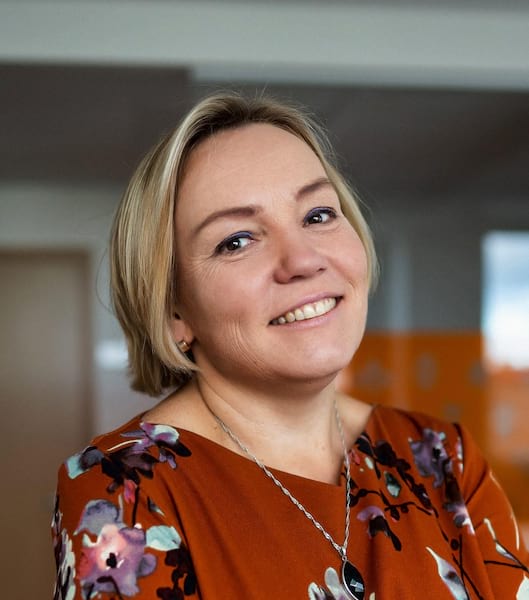
The month of May is all about spring. It’s about the leaves appearing on the trees, the hundred different shades of green the forests take on, the changes and differences we notice around us, and not just in nature, but in society as well.
May in Europe is Diversity Month, and today in Estonia is Diversity Day. All of us who live in Estonia are different, whether that be in terms of our age, our gender, our views or our interests, what we do, what skills and abilities we have or what our cultural background is. It’s thanks to these differences that we all give something valuable, something unique, to our country. The different stories we have to tell, the different skills and knowledge we have, the different things we’ve experienced all fit together like the pieces of a puzzle to reveal a bigger picture: our Estonia. The more we talk to one another, the better we understand one another and the more likely we are to find a common language, regardless of our differences.
May is an exciting month in the field of integration, too. It’s already seen the publication of the results of integration monitoring, from which it’s clear that Estonian society is moving in the right direction. The Estonian language skills of those living in the country are improving, the divisions on the labour market are growing smaller, there are fewer and fewer people who still have no citizenship, and in terms of education we are on the path towards a single school system in which the majority of Estonian residents view everyone learning together as the best solution. There are challenges, of course – differences still exist within our society that call the image of a unified Estonia into question. For example, people’s socio-economic ability to cope continues to be marked out by ethnicity-based differences: the average income among other nationalities is lower than that of Estonians, and their positions on the labour market are more vulnerable when the economy comes under pressure.
More worryingly, people of other nationalities sense greater inequality and intolerance towards themselves today than in previous years. There’s been no significant increase in everyday contact between Estonians and people of other nationalities in recent years: where they do interact, it’s mostly at school, university or work. Most contact, however, is limited to people’s local communities. The coronavirus pandemic has naturally played a big part in this, since there’s been an enormous increase in online communication. We can only hope that once we’re able to return to ‘real-life’ interaction, the amount of contact between people will also increase.
The efforts the Integration Foundation has gone to and the feedback we’ve received to date reassure us that the differences that separate us can be overcome. Joint activities and events and shared impressions help people from different backgrounds establish friendly contact and get to know one another better. We contribute to this every day, encouraging youngsters to do things together, supporting sports and cultural events that bring people together, helping to set up cooperation projects involving national minority cultural associations and Estonian cultural organisations, advising people on the most effective ways for them to learn Estonian, offering free Estonian language studies and practice, introducing Estonian culture to people from other national backgrounds and finding native-speaker friends for language learners to practise their Estonian with.
We know that there are a lot of wonderful people in our country who, despite their differences, want to feel at home here and make Estonia a stronger and closer-knit place. Happy Diversity Day!
Irene Käosaar, Integration Foundation director
If you plan studying Estonian this autumn, come in for a consultation today!
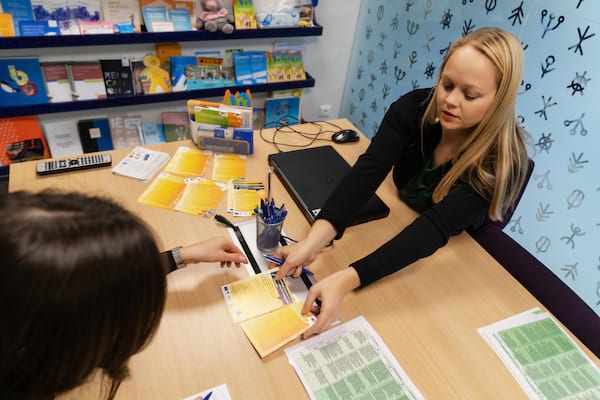
The Integration Foundation offers counselling services to adults who want to learn Estonian, helping them choose the options that are best suited to them.
Our consultants help to analyse each person’s needs and experience, clarify their current language level and draw up a suitable language-learning plan. As a result, the person has the opportunity to join one of the free Estonian courses offered by the foundation if it is found to be the most suitable form of study for them. In this case, they no longer have to apply online for a place on the course.
Counselling is aimed at those who wish to:
- start or continue studying Estonia but who need advice on the formats and options that are available and most likely to suit them;
- enrol in one of the free Estonian language courses offered by the Integration Foundation, for which groups are put together two or three times a year; or
- study Estonian independently and need information on what options are available to them.
Consultations take place not just in our offices but also over the phone or on Skype.
In addition, our consultants can provide guidance and advice on other issues related to adaptation and integration, including relevant services and support.
To register for counselling, contact our consultants by e-mailing info@integratsiooniinfo.ee or calling the free hotline 800 9999.
The next round of online registration for courses opens on 25 August. Anyone who speaks to one of our consultants before then can select a suitable form of study when doing so and will not have to apply for a course during the registration period.
Answers to general questions about language-learning opportunities and basic information about living in Estonia can also be found on our CONSULTATION SITE.
Our counselling services are financed via the European Social Fund project ‘Terms and conditions of the provision of support for activities promoting integration in Estonian society’.
New language-learning opportunity for third-country citizens
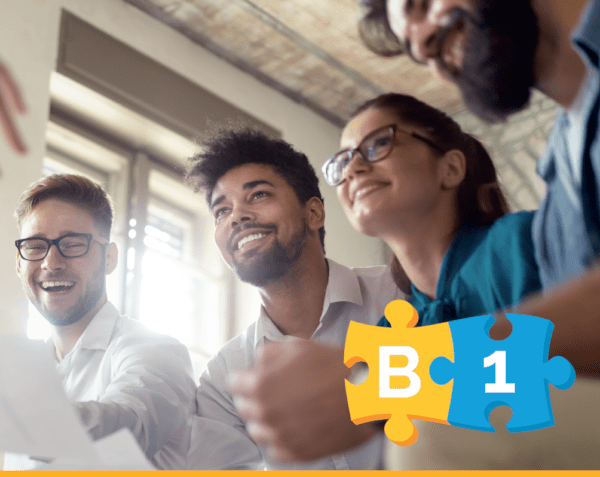
The Integration Foundation offers citizens of third countries the opportunity to study Estonian free of charge. This includes people without citizenship and those who are citizens of countries other than Member States of the European Union and the European Economic Area or Switzerland. Estonian language courses at the B1 level start in September. In order to register, applicants must first speak to one of our consultants.
The courses are designed for those who wish to be able to speak and understand Estonian at the B1 level. Each course lasts for 8-9 months, spread out over 200 academic hour, and includes guided learning, independent work, trips to museums and cultural events and excursions to different parts of the country. Estonian-speaking volunteers support the students by providing them with language practice.
Students can choose between ordinary courses and online versions. Face-to-face courses will be offered in Harju and Ida-Viru counties; elsewhere in the country they will be available online. Each course ends with a language exam, and a certificate of completion is issued to every student who passes.
The language courses are offered to citizens of third countries who are at least 18 years of age, reside in Estonia on a legal basis (or are in the process of obtaining the right to do so) and already speak and understand Estonian at the A2 level.
You must attend a free consultation at one of the Integration Foundation’s Estonian Language Centres (in Tallinn or Narva) in order to enrol on a course. Call the free hotline 800 9999 or e-mail info@integratsiooniinfo.ee to register for counselling free of charge.
This project is being co-financed by the European Union via the Asylum, Migration and Integration Fund and by the Estonian Ministry of the Interior. More detailed information can be found here.
Integration Foundation assists and offers language-learning opportunities to applicants for Estonian citizenship
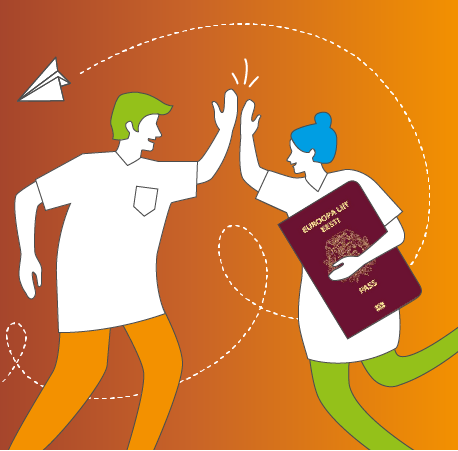
The Integration Foundation can provide advice and guidance on applying to become an Estonian citizen and offers free Estonian studies to those who wish to attain the level of Estonian required for citizenship (B1). Courses take place around the country and are open to those who have fulfilled the other requirements for obtaining citizenship.
Those who wish to apply for Estonian citizenship and who meet the conditions for obtaining it can study Estonian at the A1, A2 and B1 levels free of charge. To this end, the Integration Foundation enters into a language-learning contract with the applicant, giving them the opportunity to study Estonian free of charge and obtain state benefits for study leave, while obliging them to apply for citizenship upon completing their studies.
Language studies take place in towns and cities around the country. The final timetable is determined depending on the number of applicants and how full each group is. The length of studies depends on individual needs. Courses at all levels last for at least 120 academic hours.
In order to participate in language studies you must submit an application, indicating thereon when, where and in what format you wish to take part in the courses. Once we receive your application, we will send you further instructions within five working days. The Integration Foundation’s consultants will be happy to help if you call them on the free hotline 800 9999 or e-mail them at info@integratsiooniinfo.ee. Be sure to seek advice and instructions before submitting your application.
More detailed information and the application form can be found here.
Applications to take part in free Estonian language studies are open to anyone aged 15 or older who has resided in Estonia on a legal basis for at least five years, who has not participated in state-funded Estonian studies at the desired level in the last two years and in regard to whom there are no obstructions to applying for Estonian citizenship (see § 21 1) of the Citizenship Act).
Free Estonian language studies based on language-learning contracts are financed by the Ministry of the Interior.
Estonian Language Centres to launch diverse language and culture study programme for summer

The Estonian Language Centres in both Tallinn and Narva are planning a range of exciting language-learning and culture-promoting activities for this summer. However, since the coronavirus situation and related restrictions will determine whether face-to-face events can go ahead, plans will be finalised on an ongoing basis.
The Estonian Language Centre in Tallinn is planning an Estonian-English literature and film camp in Palamuse, an excursion to the island of Prangli, farm visits in Kuusalu and Vargamäe, an Estonian food culture club at Fotografiska, a culinary voyage around Pärnu County, an architectural tour, literary walks, a song club, a photography club at the Botanical Garden, museum visits (during the day and at night) and a journey of discovery through Tallinn’s urban space.
The big summer projects which the Estonian Language Centre in Narva has planned are the traditional and popular Estonian-Russian tandem camp (pencilled in for 10-14 August) and a song festival to be held in Narva on the 30th anniversary of the restoration of Estonia’s independence on 20 August.
Because these summer events going ahead depends on restrictions, it is a good idea to keep an eye on our web calendar and the Estonian Language Centre’s FB page for the latest updates. The events will take place in accordance with any restrictions in place at the time. More detailed information and the chance to register will be made known on the calendar at the end of May.
Students with mother tongues other than Estonian get a taste of working for the state
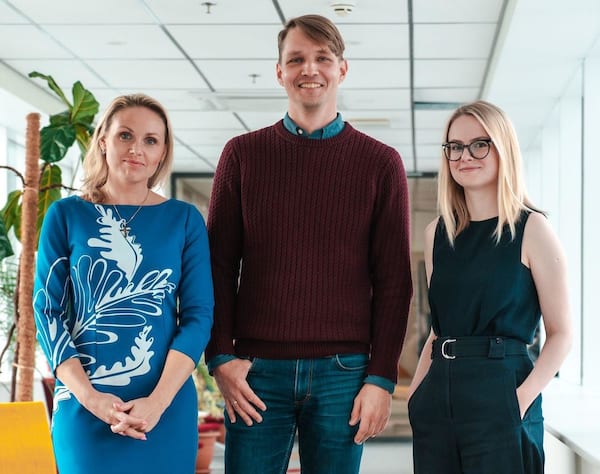 April saw the end of a work placement programmed offered by the Integration Foundation whose aim was to showcase employment opportunities in state agencies to students with mother tongues other than Estonian and to encourage them to apply for positions in the public sector in the future. As part of the programme, a total of 13 students discovered what it is like to work in the Government Office, the Office of the Chancellor of Justice and a variety of ministries.
April saw the end of a work placement programmed offered by the Integration Foundation whose aim was to showcase employment opportunities in state agencies to students with mother tongues other than Estonian and to encourage them to apply for positions in the public sector in the future. As part of the programme, a total of 13 students discovered what it is like to work in the Government Office, the Office of the Chancellor of Justice and a variety of ministries.
In cooperation with the Ministry of Culture and the Ministry of Finance, the Integration Foundation launched a programme in the course of which a variety of state agencies offered work placements to students with mother tongues other than Estonian who were in their final year of Bachelor’s studies or undertaking Master’s studies. Opening their doors to the students were the Government Office, the Office of the Chancellor of Justice and seven ministries: the Ministry of Education and Research, the Ministry of Culture, the Ministry of Justice, the Ministry of Economic Affairs and Communications, the Ministry of Finance, the Ministry of the Interior and the Ministry of Social Affairs.
The programme was offered in cooperation with Tallinn University, TalTech, the Estonian Academy of Arts and the University of Tartu. A total of 36 students with seven different mother tongues applied to take part, among whom the 13 available placements were filled by 10 Russian-speaking students, one Estonian-Russian bilingual student, one German-speaking student and one Turkish-speaking student.
More detailed information can be found here.
Training and discussion days on integration services to be held in counties started from 4 May
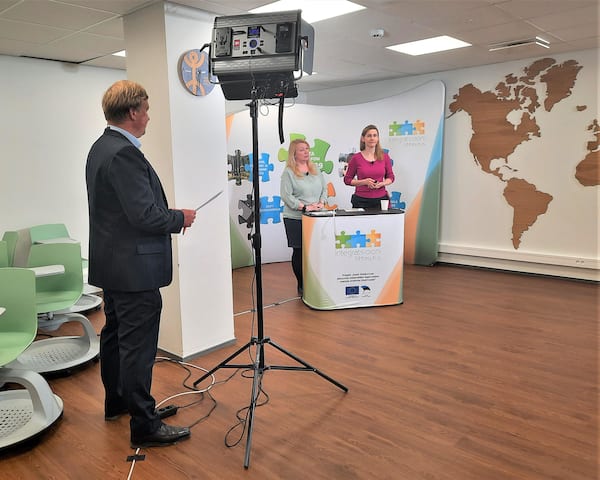 The Integration Foundation is organising a series of 15 training and discussion days in order to introduce local governments to integration and adaptation services, the online integration consultant tool and other recent innovations developed by the state. The best cooperation solutions will be sought for each region in the course of the discussions.
The Integration Foundation is organising a series of 15 training and discussion days in order to introduce local governments to integration and adaptation services, the online integration consultant tool and other recent innovations developed by the state. The best cooperation solutions will be sought for each region in the course of the discussions.
These meetings of representatives of the Integration Foundation and the Ministry of Culture with local government employees will start in Harju County before continuing in Lääne-Viru County, then Järva County and so on around the country, with the final meeting being held in Rapla County in early September. Depending on the COVID situation, the events will either be held in person or online.
Together, the participants will seek solutions to pressing integration issues in their own county and discuss which of the adaptation and integration services offered by the state are (or are likely to be) of the greatest help to them. They will also be introduced to a variety of services designed to make adapting easier, to the journey of users from one service to another and to the new online integration consultant tool LINDA.
Completed in early 2021 under the aegis of the Integration Foundation, the LINDA online environment makes the work of integration consultants both quicker and easier. It brings together general information about integration services and enables users to find out about the support services offered in other countries and to create a service journey for every client.
The Integration Foundation is looking forward to applications for integration awards
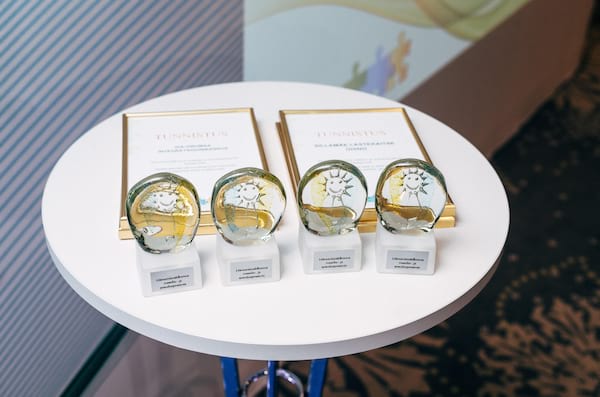
Applications are welcome to the Integration Foundation for receiving awards for projects carried out in the field of integration. The deadline for applications is September 13th.
The integration prize fund is EUR 4,000. The prizes will be awarded in four categories and the best project promoter of each category will receive a prize of EUR 1,000.
Applications for awards can be submitted in the following categories:
- Cultural Introducer of the Year (introduction of the cultures of national minorities living in Estonia to the Estonian public);
- Bridge Builder of the Year (implementation of cooperation projects between native Estonians and non-Estonian residents);
- Message Carrier of the Year (development of attitudes supporting integration through the media);
- Spark of the Year (implementation of outstanding activities in the field of integration).
Projects with the implementation period between 23.09.2020 - 12.09.2021 can be submitted to the competition.
Applications can be submitted in several categories, but in this case, different projects or activities must be proposed in each category. The competition is not open to legal or natural persons who have already received an integration award in the last three years.
To participate in the competition, you must fill in the application form available on the Integration Foundation’s website. The Competition Guide can be found on the same page. The completed application must be sent to the Integration Foundation’s address taotlus@integratsioon.ee by 13 September 2021.
The names of the prize-winners will be published on the website of the Integration Foundation and the awards will be presented at the end of 2021.
The full information can be found here (in Estonian)
Join our Facebook game!
 Today, 12 May, is Diversity Day. And there’s plenty for us to celebrate! The approximately 200 different nationalities represented in Estonia spoke a total of 231 mother tongues in 2020, each of them enriching our cultural space in their own way.
Today, 12 May, is Diversity Day. And there’s plenty for us to celebrate! The approximately 200 different nationalities represented in Estonia spoke a total of 231 mother tongues in 2020, each of them enriching our cultural space in their own way.
To mark this occasion, we’ve launched a game in which you can win gift vouchers to discover the culinary delights on offer in restaurants around the country. You’ll find the game (which runs through to lunchtime on 19 May) on the Integration Foundation’s FB page.
Open calls for tenders and calls for proposals
Information on procurements and application rounds that are currently open is available on the website of the Integration Foundation in Estonian. In the near future we will be making another call for proposals for the running of further integration-based cooperation activities.
Since the start of 2021, the Integration Foundation has organised six rounds of application with the aim of supporting and implementing a range of projects in the field of integration.
As a result, 22 projects being run by the cultural associations of fellow Estonians in other countries are being supported, as well as 22 projects showcasing national minority cultures, 10 sports and cultural events taking place in Ida-Viru County, four projects for the organisation of family studies and 13 sports and cultural events around the country designed to foster integration. A call for proposals has led to 14 ideas being selected for the organisation and running of integration-based cooperation activities.
The procurements resulted in partners being found for the running of camps for young foreign Estonians and for the organisation of a song festival dedicated to the 30th anniversary of the restoration of Estonia’s independence that is to be held in Narva on 20 August.
Our calendar
Information on events that take place by our organisation, participation or support, can be found in the calendar published on our website.
Our news
You can read the latest announcements of the Integration Foundation in the news section of our website and on the Facebook page of the Integration Foundation or the Estonian Language House.
